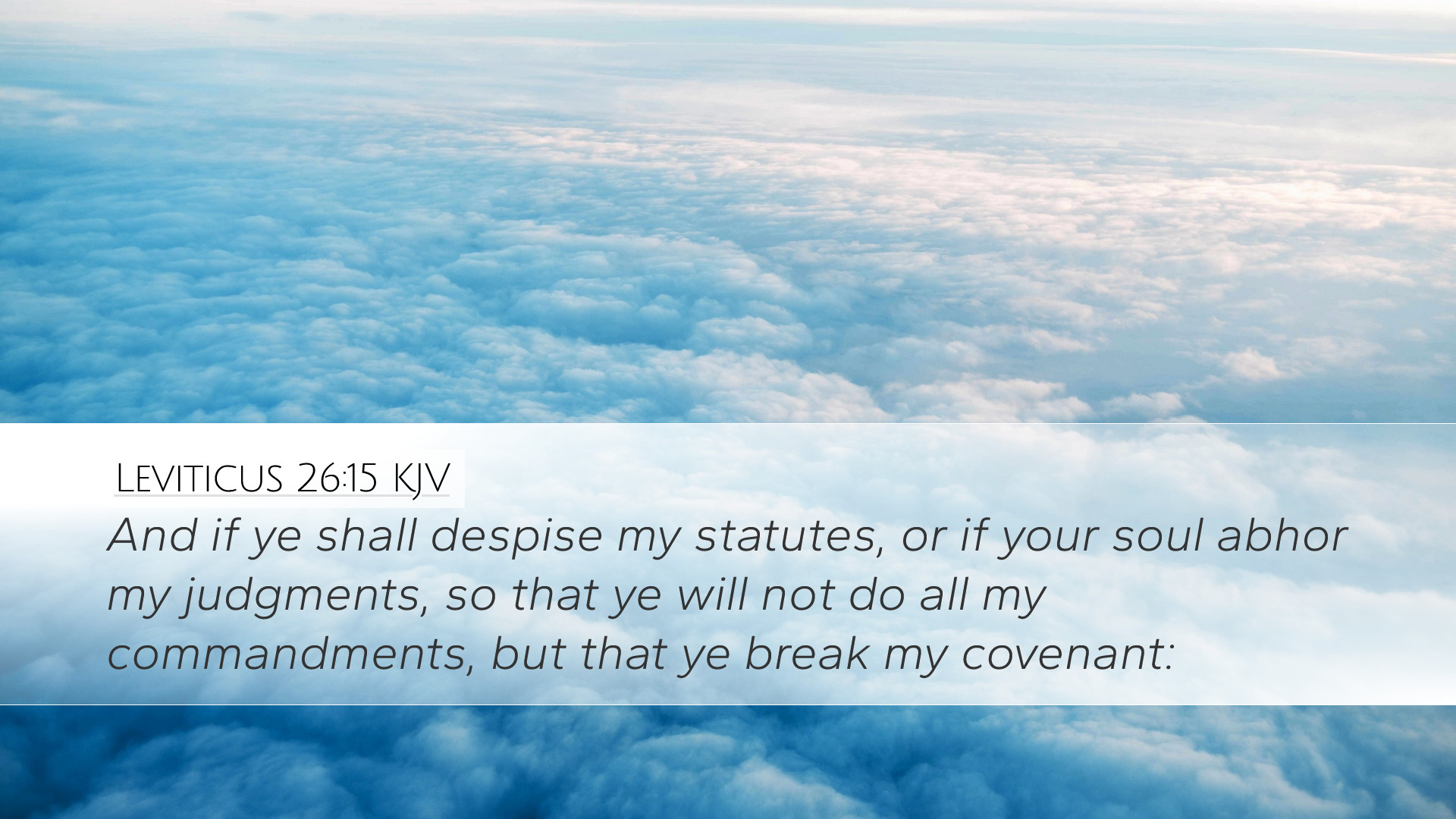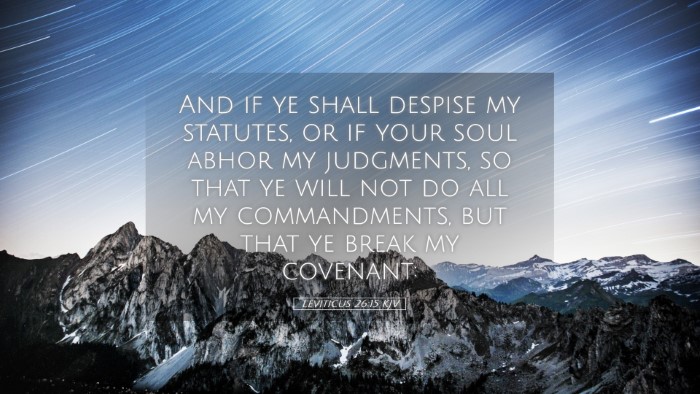Commentary on Leviticus 26:15
Bible Verse: "And if ye shall despise my statutes, or if your soul abhor my judgments, so that ye will not do all my commandments, but that ye break my covenant:" (Leviticus 26:15, KJV)
Introduction
This verse stands as a pivotal warning within the broader context of Leviticus 26, where God outlines the blessings of obedience and the consequences of disobedience. The significance of this passage can be better understood when viewed through the insights of esteemed Biblical scholars such as Matthew Henry, Albert Barnes, and Adam Clarke.
Insights from Matthew Henry
Matthew Henry emphasizes the weightiness of God's laws, suggesting that to despise His statutes is to treat sacred things with irreverence. He describes this disdain as a clear manifestation of a rebellious spirit, one that leads to the rejection of God's covenant. Henry notes that God's statutes are not mere suggestions; they are divine commands intended for the welfare and sanctification of His people. Thus, a refusal to abide by these statutes signifies a grave misstep in the relationship between God and Israel.
Insights from Albert Barnes
Albert Barnes elaborates on the concept of “despising” God's commands, indicating that this attitude stems from a misunderstanding of God’s holiness and authority. He argues that the phrase "your soul abhor my judgments" demonstrates a deep-rooted animosity toward the righteousness of God. This abhorrence has practical implications, leading to the ultimate breaking of the covenant established between God and His people. Barnes highlights that such actions invite severe repercussions, as they undermine the foundational trust and dependence that should characterize the covenant relationship.
Insights from Adam Clarke
Adam Clarke offers a robust analysis of the covenantal implications of this verse. He posits that breaking God’s covenant is synonymous with rejecting His promises and provisions. Clarke stresses the importance of recognizing that God’s statutes, when followed, lead to abundant blessings. However, the act of mingling disdain with disobedience can sever this divine connection. He sees this verse as a solemn reminder of the consequences of ignoring God’s word—both in personal spirituality and corporate worship.
Theological Implications
From a theological perspective, Leviticus 26:15 articulates a critical principle of covenant theology: the need for fidelity to God's commands as a reflection of faithfulness to the covenant. The verse serves as a reminder that our attitude towards God's law reflects our understanding of His nature. Disregarding God's commands is ultimately a rejection of His loving authority.
Pastoral Application
For pastors and church leaders, this verse underscores the importance of teaching the congregation about the nature of God’s commands. It serves as a pastoral admonition to cultivate a reverent attitude towards Scripture while fostering community accountability in honoring the covenant relationship with God. The church should actively engage in discussions about the significance of obeying God's statutes to avoid spiritual aversion.
Practical Reflections for Students and Scholars
For students and biblical scholars, the complexity of Leviticus 26:15 warrants comprehensive study. Engaging with the original Hebrew text and assessing the historical context can yield deeper insights into the nature of God’s call for obedience and the dire consequences of covenantal unfaithfulness. This verse invites rigorous theological discourse around the interplay of law, grace, and community ethics in the Old Testament.
Conclusion
In summary, Leviticus 26:15 serves as a potent reminder of the serious nature of God's statutes and the covenant relationship. Through the perspectives of Henry, Barnes, and Clarke, we grasp the depth of disobedience and its implications not only in the context of ancient Israel but also in contemporary faith practice. As we navigate our walk with God, may we embrace His commands with reverence and act in ways that honor His covenant.


